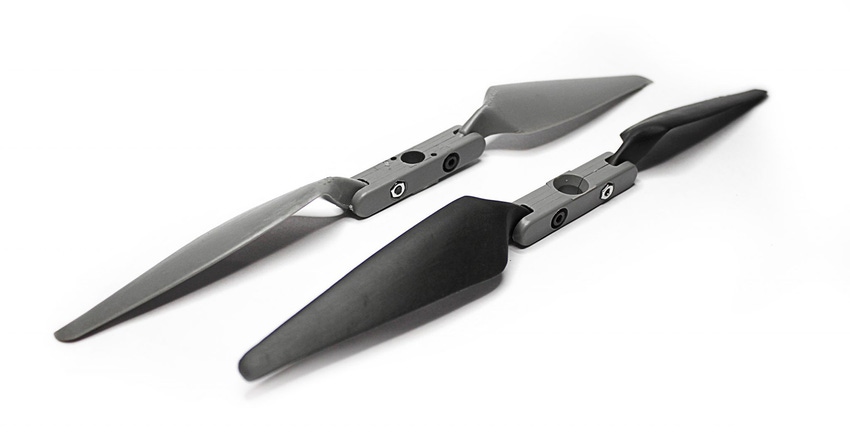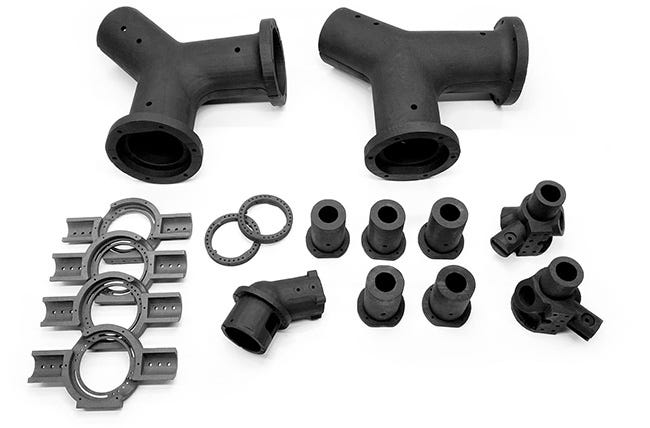Ricoh 3D Adds Carbon-Fiber Composites to Portfolio through Partnership with Impossible Objects
Novel 3D-printing process allows cost-effective manufacture of reinforced composite parts with strength-to-weight ratios and performance parameters that rival metals.
March 31, 2021

3D printing specialist Ricoh 3D reports that it has added carbon-fiber composites to its portfolio of high-performance materials through a partnership with composites-based manufacturer Impossible Objects. Ricoh 3D claims to be one of the first additive manufacturing (AM) service bureaus to make 3D-printed carbon-fiber PEEK and carbon-fiber PA 12 materials commercially available in Europe for functional prototypes and small batch production.
The 3D-printing process leverages high-speed 2D graphics technology to create cost-effective, reinforced composite parts with strength-to-weight ratios and performance parameters similar to metals, according to the company. Compared with traditional methods, Impossible Objects’ Composite-Based Additive Manufacturing (CBAM) process reportedly creates much stronger parts with few geometric restrictions at a significantly lower price point. Aerospace and drone manufacturers will benefit, in particular, because fine features and flat parts previously were impossible to print via fused deposition modeling and fused filament fabrication because of the short, chopped fiber formation and lamination between layers, causing parts to fall apart under force.
With powder-based 3D composites, continuous carbon fiber is contained in long-fiber printing sheets, allowing full, homogenous coverage of the fibers and making possible point features and feathered edges. The excess fibers support the unprinted areas, eliminating shrinkage, curling, and deformation of parts, according to Ricoh 3D.
|
Carbon-fiber composites are suited for 3D printing tooling and end-use parts in a range of industries, including medical, aerospace and automotive. |
“Composites are set to be an area of huge growth in additive manufacturing in the coming years, so we are proud to be working with Impossible Objects at the forefront of the European movement,” said Mark Dickin, Additive Manufacturing & Molding Engineering Manager, Ricoh 3D. “Carbon-fiber composites are industry-leading when producing lightweight yet strong parts. These properties make the materials ideal for tooling and end-use applications in a range of industries, including medical, aerospace, automotive, sport, and industrial, creating anything from propellers to gear components, golf clubs to prosthetics,” said Dickin.
He added that sustainability is important to the company, and that all powder is recycled by extracting the waste material off the sheet, ensuring nothing is wasted.
Traditional composite manufacturing is labor, resource, and capital intensive. Through 3D printing, production can be automated with minimal manual input, streamlining the process and making it far more cost effective, according to Impossible Objects. “Our collaboration with Ricoh 3D is another major endorsement of our revolutionary 3D-printing process,” said Bob Swartz, Impossible Objects founder and Chairman. “CBAM opens up new possibilities for additive manufacturing by making it possible to produce stronger, high-performance 3D-printed parts at dramatically lower cost than ever before. Our partnership with Ricoh 3D will extend these competitive advantages to more organizations across Europe.”
About the Author(s)
You May Also Like



